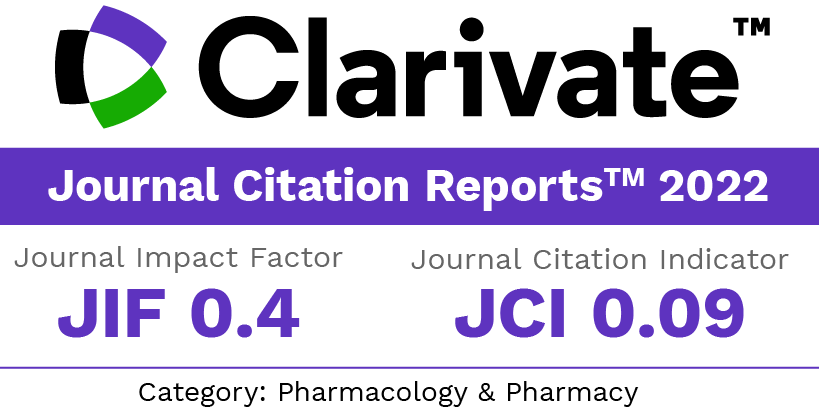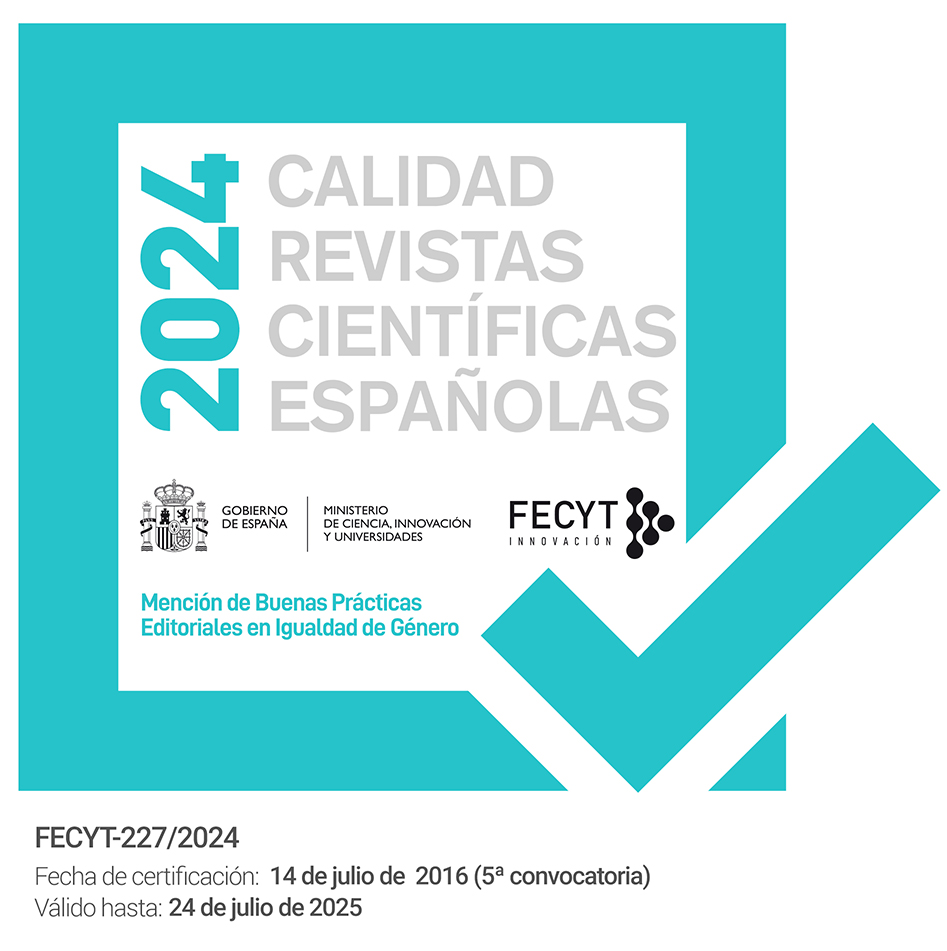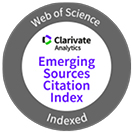Impact of formative assessment in Pharmacology learning: a three year follow up
Keywords:
Bachelor in Pharmacy, Formative assessment, Pharmacology, Student-centered educationAbstract
Aim: To evaluate the impact of formative assessment (FA) in the results obtained by students in the subject General Pharmacology, given in the third year of the Bachelor of Pharmacy.
Material and Methods: We compared the grades reached in years 2011/12 (without FA) with those in years 2012/13 and 2013/14 (with FA). FA was performed twice a week consisting in i) oral questions to the whole student group, ii) short-answer open questions (at the beginning or end of class) and iii) individual work or collaborative work in small groups (pharmacotherapeutic cases) answered in the classroom or at home. Corrections were made by the teacher, either in class or by written feedback (only opinions for improvement and progress were indicated). The work was not scored, only taking into account whether or not it had been performed. The marks were obtained as a result of an exam, which was similar in the three courses, combining multiple choice questions, short-answer questions and pharmacotherapeutic cases.
Results: The sum of failing students and students not taking exam significantly decreased after the introduction of the FA from 48.5 % (2011/12) to 23.4 % (2012/12) and 20.5 % (2013/14). The number of passing students significantly increased from 51.5 % (2011/12) to 76.6 % (2012/12) and 79.5 % (2013/14). We also noticed a shift in marks to higher values (significant increase in the proportion of B and A).
Conclusion: The introduction of FA as a learning strategy in General Pharmacology has a great impact on improving the quality of student learning.
Downloads
References
Yorke M. Formative assessment in higher education: Moves towards theory and enhancement of pedagogic practice. Higher Education. 2003;45:477-501.
Morales Vallejo P. La evaluación formativa. En: Morales Vallejo P, editores. Ser profesor: una mirada al alumno. 2ª ed. Guatemala: Universidad Rafael Landívar, 2010, p. 33-90.
Snyder B R. The Hidden Curriculum. Cambridge, MA, M.I.T. Press, 1971.
Ramsden P. Learning to Teach in Higher Education. London, Routledge, 1992.
Scouller KM. The influence of assessment method on students‘ learning approaches: Multiple choice question examination versus assignment essay. Higher Education. 1998;35(4):453-472.
Tian X. Do assessment methods matter? A sensitivity test. Assessment & Evaluation in Higher Education. 2007;32(4):387-401.
Balch WR. Effects of Test Expectation on Multiple-Choice Performance and Sujective Ratings. Teaching of Psychology. 2007;34(4):219-225.
Boston C. The concept of formative assessment. ERIC Digest. Practical Assessment,Research & Evaluation. 2002:8(9):1-8
Jenkins M. Unfulfilled Promise: formative assessment using computeraided assessment. Learning and Teaching in Higher Education. 2004;1:67-80.
Nicol D, Macfarlane-Dick D. Formative assessment and selfregulated learning: a model and seven principles of good feedback practice. Studies in Higher Education. 2006;31(2):199-218.
Boud D. Assessment and learning: contradictory or complementary? En: Knight P, editor. Assessment for Learning in Higher Education. London: Kogan Page, 1995, p. 35-48.
Black P, Wiliam D. Inside the black box: Raising standards through classroom assessment. Phi Delta Kappa. 1998;80(2):139-148.
Downloads
Published
How to Cite
Issue
Section
License
The articles, which are published in this journal, are subject to the following terms in relation to the rights of patrimonial or exploitation:
- The authors will keep their copyright and guarantee to the journal the right of first publication of their work, which will be distributed with a Creative Commons BY-NC-SA 4.0 license that allows third parties to reuse the work whenever its author, quote the original source and do not make commercial use of it.
b. The authors may adopt other non-exclusive licensing agreements for the distribution of the published version of the work (e.g., deposit it in an institutional telematic file or publish it in a monographic volume) provided that the original source of its publication is indicated.
c. Authors are allowed and advised to disseminate their work through the Internet (e.g. in institutional repositories or on their website) before and during the submission process, which can produce interesting exchanges and increase citations of the published work. (See The effect of open access).


















